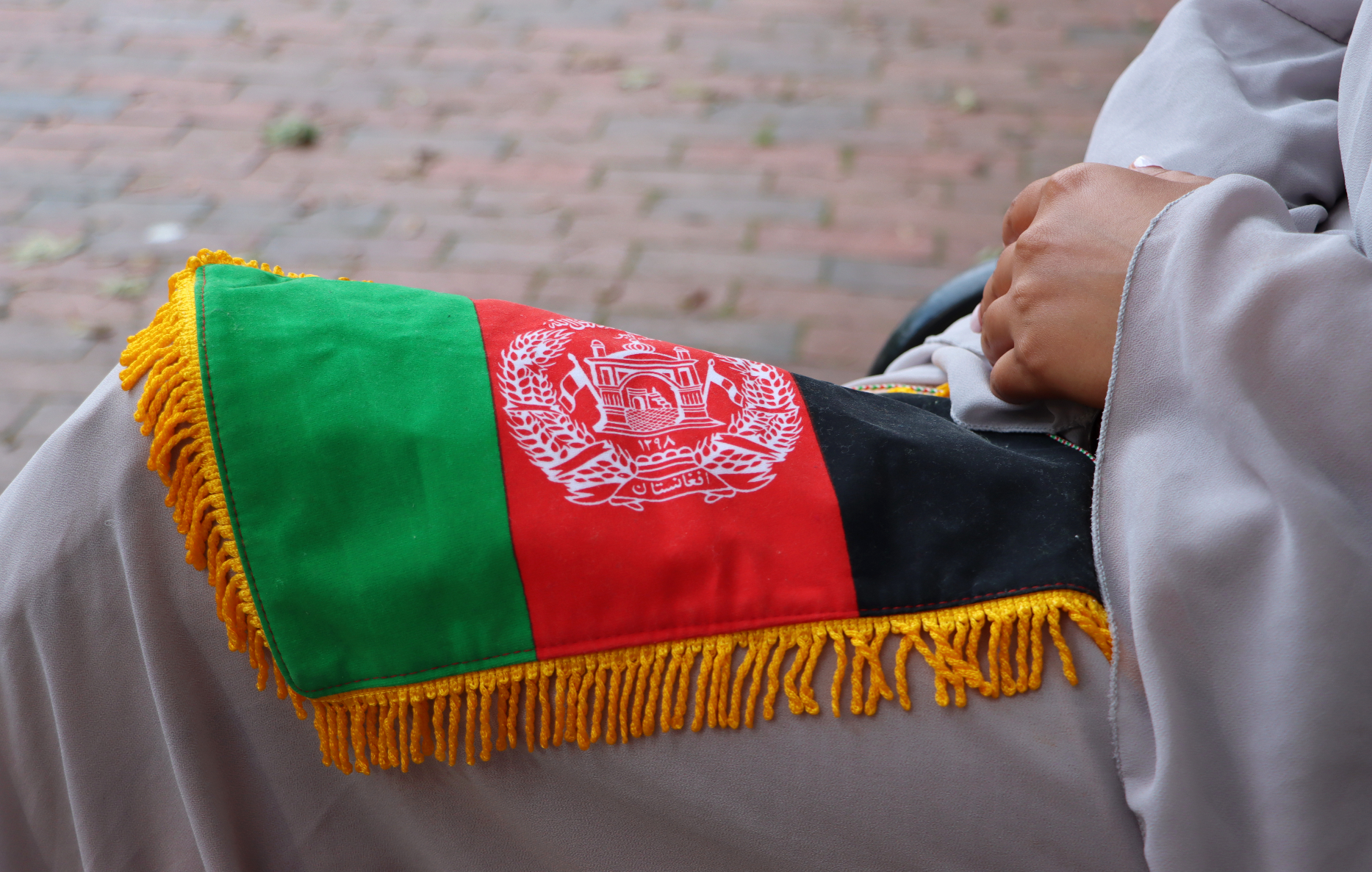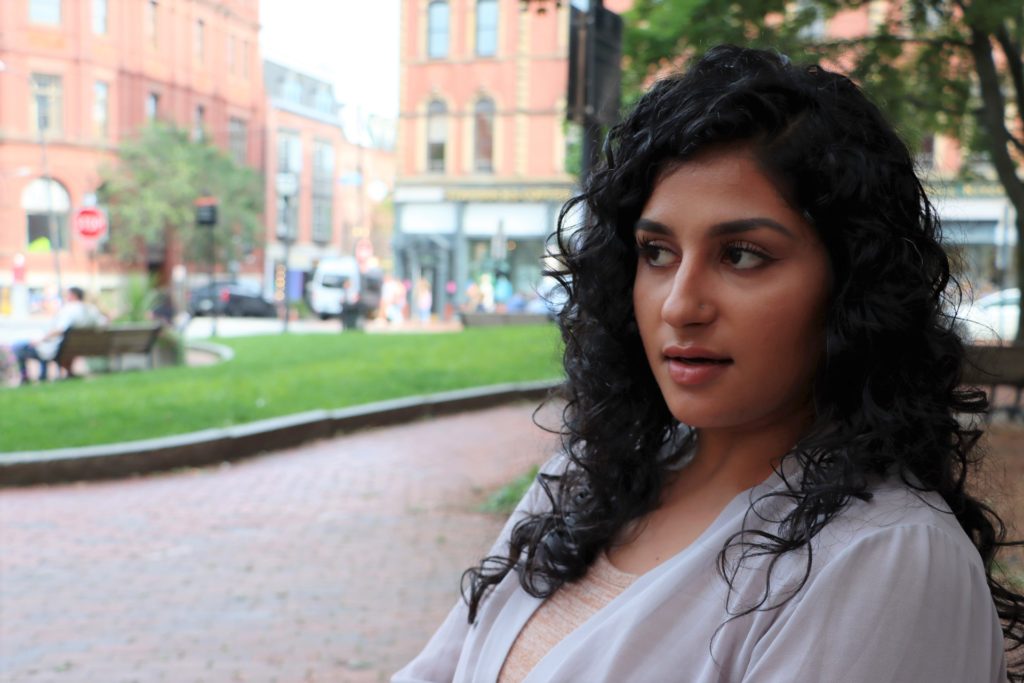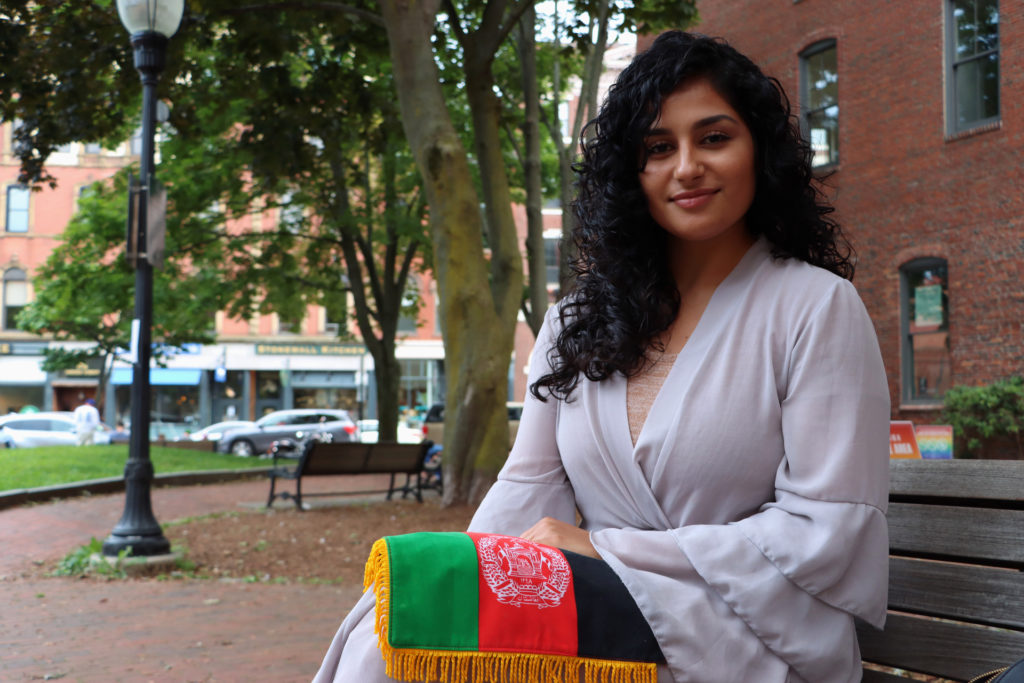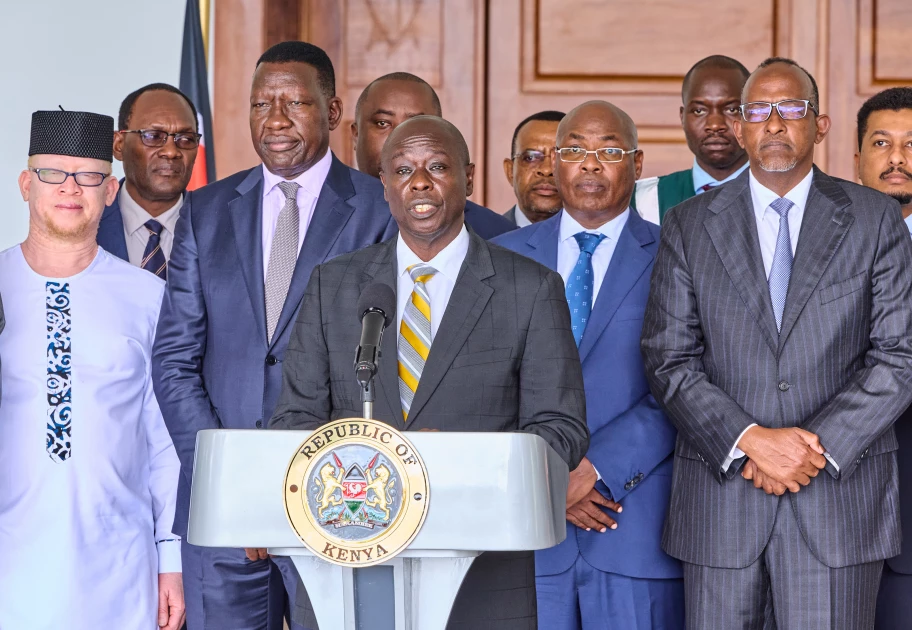By isxaaq Rashiid Madaxweynaha Jamhuuriyadda Federaalka Soomaaliya Mudane Xasan Sheekh Maxamuud iyo Madaxweynaha Jamhuuriyadda Midowday…

Afghanistan, in the words of a young Afghan woman in Maine
By Setareh Jalali
It’s easy to watch the situation in Afghanistan with pity as videos showed Afghans clinging to and falling from planes carrying out foreign nationals. It’s even easier to watch the 6 o’clock news or listen to the latest podcast with senior analyzers and former Bush advisers rationalizing their decisions.
But for some in Maine, the hurt is much closer to home, or their home away from home.
Sitting outside with Neilab Habibzai feels like sitting in the presence of a goddess. Her olive skin seems to radiate in the light and her curly black hair is like something out of a Middle Eastern fairy tale. It’s no wonder that she was stopped during our conversation by multiple strangers who told her she was beautiful.
Neilab, 23, is from Afghanistan but was born and raised in Portland. She dreams of going back and helping the people of her country one day.
Neilab still has family in Afghanistan, namely in Kabul, where the Taliban was able to take power last weekend just 5 days after U.S. troops began their exit. She says she feels lucky that her family still has internet and electricity so that she can stay in touch with them through the situation.
“They are worried, and they are scared, because obviously, this isn’t the first time that they’ve dealt with the Taliban. The first time this happened, [my family] moved to Pakistan and then Southern Iran,” Neilab said. “They don’t trust the Taliban, but they don’t trust the former government as well, because of…the Taliban taking over and President Ashraf Ghani leaving.”

She says she’s not entirely surprised by the quick turnover to the Taliban, but she thought it would take a bit more time.
“I didn’t think it would be turned over to the Taliban so quick, especially with the population they have,” Neilab said. This is a reaction shared by many, including the analysts who were working on Afghanistan prior to the troops exit, perhaps because there are thought to be 300,000 Afghan security forces but only 60,000 Taliban members.
For Neilab, who graduated last year from St. Lawrence University with degrees in Government Systems and Arab Studies, the situation has been frustrating to watch not only as an Aghan but also as an aspiring diplomat. She says that going to school for Government studies helped her understand the U.S.’ motivations in various parts of the world, but especially the Middle East.
“I realized in school that any country that America has any relationship with is for their own self-interest and their motives,” Neilab said. She focused on the fact that the U.S. went into the country with no intention of nation-building, as Biden also said in a speech in July.
In that speech, Biden said that it was the right and responsibility of the Afghan people to decide how to run their country in the future. Neilab says this wasn’t fair to Afghans and ended up being a huge misstep with repercussions for all involved.
“They gave millions of dollars in aid when the Russians invaded, and they put it in the hands of people who were largely uneducated men. And they expected these people with millions of dollars to… build what for themselves?,” Neilab asked. “Afghans don’t even know where to begin to have a system other than the Taliban. I believe [the U.S.] should have led with nation building; they know it’s a war-torn country… and they went in just giving the weapons in [the Taliban’s] hands.”
Neilab’s father, a former Mujahedeen fighter against the Russians, was one of the soldiers who fought with weapons bought with this aid. He came to the U.S. as a refugee in the 80’s before bringing Neilab’s mother a few years later. They both came to escape the unrest in their home country that became entrenched in the Cold War.
Neilab is thankful that the U.S. is allowing more refugees like her parents to come after the Taliban’s takeover through special visas, but she also said it was the bare minimum.
“They should be doing that. You’re going to take care of everyone who helped you. It’s only fair to those people who stood up with you,” Neilab said.
Neilab says her and her family aren’t sure what the right next step is for her home country—and who can blame them? Despite wishing they had done it differently, Neilab says she’s glad that the American troops are finally out and that a new era can begin for Afghanistan.
“For me personally, I think that if the Taliban were to be more accepting and more lenient with women’s laws… I feel like Afghanistan would actually be a peaceful country. I really believe that.”
This could be a surprising viewpoint to the average American, but Neilab stressed that she wasn’t necessarily in support of the Taliban. Rather, she said that she was intrigued to see what would happen in the coming weeks.
“I do understand from what I’ve seen that [the Taliban are] writing amnesty for Afghan soldiers to leave Afghanistan. That’s something completely shocking,” Neilab said. “The Taliban of 10 or 20 years ago would have just shot them in the head.”
She also explained another positive that could come out of the Taliban’s rule.
“Before the Taliban, there was lots of Rishwat (bribing) in the workplace. Lot of money to only elites. But there’s none of that under the Taliban because of sharia law,” she explained.
Neilab like many others believes that the Taliban could feel more beholden to the UN and foreign allies for aid, since it makes up the majority of Afghanistan’s GDP. She thinks this might be why they held a press conference last weekend stressing that they would respect women’s rights and even include them in government positions.
When asked about her female relatives still living in Afghanistan though, the usual twinkle in Neilab’s eye seemed to fade.
“I feel scared for them, because we don’t know what to expect. Being hopeful is the last thing we think of when we’re actually living there, I think our lives are more of what we focus on,” Neilab said. “I’ve cried many times in the past week, and it’s something that’s not new. This is what our people have seen for the last 40 years. My parents were raised in this fear. Everyone has fear in their blood.”
Neilab does her best to find hope though, especially in her career aspirations. She currently interns with the Oppia Foundation, which aids underserved children in education globally by working with local educators to install accessible programs.

Neilab looks for programs in Afghanistan that are willing to work with the organization, but she says work has been put on the back burner because of the instability in the country and her own need to mentally heal.
For now, she looks forward to the day she can work with women and children in Afghanistan, something she’s wanted to do since 2007 when she was able to visit the country. She says the poverty she saw as an 11-year-old shocked her, especially among women with children. It’s what inspires her to want to do this work now.
“I definitely want women to feel free, and for children and young women to feel free. I want to create an environment for them where they know they’re safe, where they can achieve anything to their best ability. That’s my main goal really at this point.”


